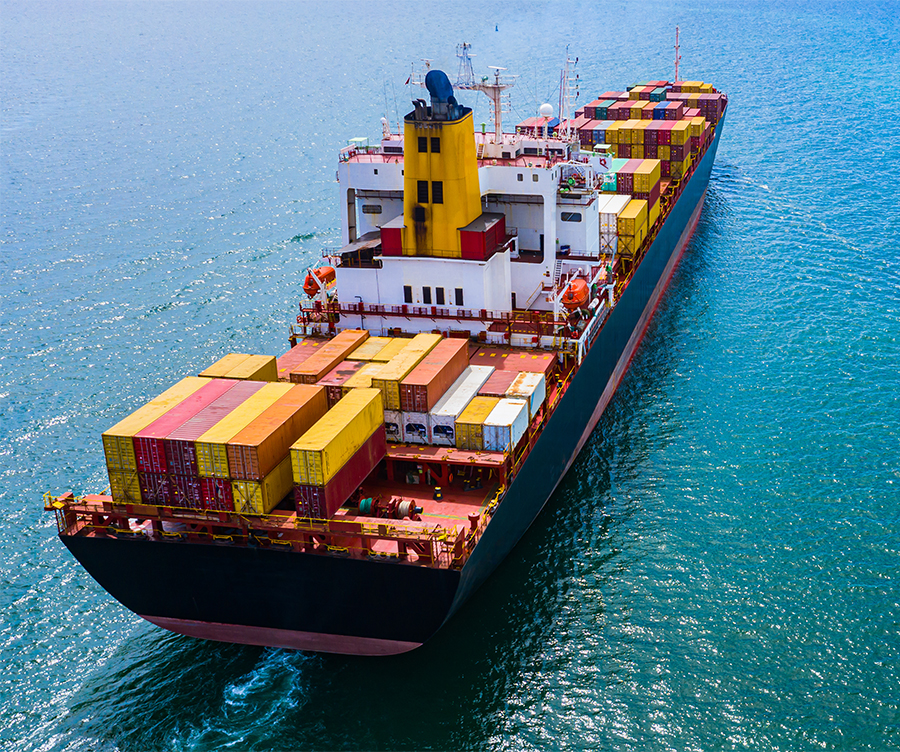Growth in global merchandise trade could shrink considerably in 2023, the World Trade Organization (WTO) has warned, as it slashes its growth forecasts in response to spiralling inflation and the uncertain impacts of Russia’s invasion of Ukraine.
The WTO now expects global trade to grow by 1% next year, compared to the 3.4% it forecast in April – itself a hefty downgrade from forecasts made in 2021 – and says trade growth is likely to “lose momentum” in the second half of 2022.
While the Geneva-based organisation upped its growth forecast for this year by half a percent to 3.5%, it said that was largely because of statistical revisions.
“The picture for 2023 has darkened considerably,” WTO director general Ngozi Okonjo-Iweala told reporters just before the updated forecasts were released. “Today the global economy faces a multi-pronged crisis. Monetary tightening is weighing on growth across much of the world.”
The WTO warns that an intensification of the war in Ukraine, consequences of rising interest rates and a poorly performing Chinese economy could cause trade prospects to deteriorate further, with Okonjo-Iweala noting the risks “are all on the downside”.
The causes for the expected slowdown in trade are not uniform across the globe, the WTO says.
While skyrocketing energy costs – particularly for natural gas – have fuelled inflation in Europe, cost of living pressures in the US are attributed largely to steep interest rate hikes pushing up housing costs, while demand in Asia is seen as being dampened by ongoing supply chain constraints and China’s strict zero-Covid policy.
Central banks around the world have ratcheted up interest rates in response to creeping inflation largely triggered by soaring energy prices that followed Russia’s invasion of Ukraine.
The trend is most pronounced in Europe, which is more reliant on Russia for imports of natural gas.
But the WTO also signals unease over a possible overreaction by central bankers to spiralling inflation.
“Major central banks are already raising interest rates in a bid to tame inflation but overshooting on tightening could trigger recessions in some countries, which would weigh on imports,” the organisation warns. “Alternatively, central banks might not do enough to bring inflation down, possibly necessitating stronger interventions in the future.”
“There is a lot of worry because of uncertainty. Business doesn’t like uncertainty, economists don’t do very well with uncertainty,” adds Okonjo-Iweala.
Illustrating the shifting sands on which the organisation bases its forward predictions, it provided ranges for 2023 trade with a worst-case scenario of a -2.8% contraction in overall trade or growth as high as 4.6% if “the surprises are on the upside”.
Growth bright spots
The WTO says Africa and the Middle East look set to be the only regions to report significantly higher exports and imports this year. Exports from the Middle East are expected to jump by 14.6% in the Middle East and 6% in Africa, according to the report, while imports are seen expanding by 11.1% and 7.2% respectively.
For the second quarter of 2022, the Middle East, Africa and South America’s imports “came in stronger than expected, as higher commodity prices inflated export revenues, allowing countries in these regions to import more,” the WTO says.
Exports from the Middle East and Africa are expected to contract slightly next year, however, and WTO senior economist Coleman Nee warned that the data for both regions is skewed by the dominance of a small number of major natural resource exporters that have benefited from higher commodity prices.
Largely due to the war in Ukraine, merchandise trade in the CIS region, which includes Russia, plummeted by 21.7% during the same period. The decline for the whole year is expected to be 5.8%.
Exports from Ukraine have been disrupted by the invasion and Russia’s subsequent occupation of wide swathes of the country’s east, while US- and EU-led sanctions have hammered Russian exports and largely expelled the country from the global financial system.
The WTO also repeats past warnings about the ongoing price shocks for developing economies due to the rising costs of fertilisers, some staple foods and other goods as a result of the war in Ukraine.
Okonjo-Iweala, a former Nigerian finance minister, says she hopes policymakers are not tempted to impose trade restrictions in response to vulnerabilities in supply.
“What we need is a deeper, more diversified and less concentrated base for producing goods and services,” she says. “In addition to boosting economic growth, this would contribute to supply resilience and long-term price stability by mitigating exposure to extreme weather events and other localised disruptions.”







